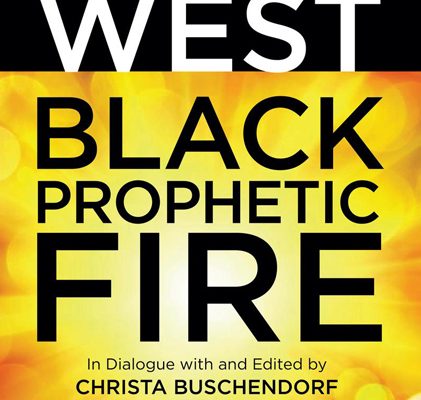
Keeping the social conscience burning through six different models of African-American leadership.
Spurred by the election of the first black president and the subsequent eruption of the Occupy Wall Street movement, accomplished, outspoken African-American scholar West (Pro+Agonist: The Art of Opposition, 2012, etc.) and fellow academic Buschendorf held several conversations between the summer of 2009 and January 2013 about the ongoing relevance of historic black figures. Moving from Frederick Douglass back to Ida B. Wells, the authors treat the towering and often uneven legacy of leaders who spoke out against injustice and even, like Martin Luther King Jr. and Malcolm X, died for their beliefs. West has long advocated for the importance of the “organic intellectual,” one not afraid to come down from the ivory tower and mess with “grass-roots folk,” and he admires in these six figures their relentless truth-speaking and ability to inspire others to action. Indeed, Malcolm X’s parrhesia, or “fearless speech,” in expressing black rage is West’s ideal. Similarly, he admires a critic such as Wells, born a slave, who exposed in her investigative newspaper reporting the lynching going on in the South in the 1880s when others wouldn’t touch the subject; or the galvanizing grass-roots leadership of Ella Baker, who resisted the charismatic style of King in favor of hands-on mobilizing and teaching and thus was a catalytic model for the Occupy movement. West bemoans the “deodoriz[ing]” of these radical figures—e.g., shying away from W.E.B. Du Bois’ communist sympathies and the turn toward complicity with the white mainstream. The concluding section, “Last Words on the Black Prophetic Tradition in the Age of Obama,” however, is lacking, as West aims his vitriol against the “cowardly capitulation of Black leadership to Obama’s neoliberal policies,” without a chance for vigorous rebuttal.
Lively, heated, fighting words—self-serious but never dull. | Source: Kirkus Review
| There are no products |